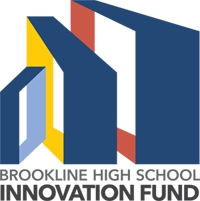Finding Yourself in the Curriculum
This summary was provided by the FYC faculty upon program completion, June 2020.
The FYC program is a two-year school-wide initiative that connects students, teachers, and school leaders and develops a deeper understanding of identity through classroom curricula and adult learning opportunities for faculty. FYC serves as a vehicle for learning and reflection about self-identity, for building empathy for others, for promoting awareness regarding power and privilege, for inspiring action, and for furthering the content goals of each individual course. This program allows all BHS teachers to embed thoughtful, course-specific curriculum regarding many aspects of identity, with emphasis on the “Big 8” social identities: race, ethnicity, sexual orientation, gender identity, ability, religion/spirituality, nationality and socioeconomic status (Johnson, 2006). Through this more coordinated and dedicated effort to assemble, showcase, develop, and implement identity-based course content school-wide, BHS can ensure it reaches, hears, sees, and values each and every one of its students.
In the fall of 2018, the three Finding Yourself in the Curriculum (FYC) Teacher Leaders — Marika Alibhai (Math), Liz Crane (Biology), and Julia Rocco (English) — began our project by embarking on a listening tour. We spoke to program heads, curriculum coordinators, other teachers, student groups, and other members of our community to figure out how best to implement our goal of ensuring that identity-related curriculum is fully integrated into all students’ 9-12 learning experiences at BHS. This was an appropriate start, as communication and collaboration was the cornerstone of our work throughout our first year and into our second, when Scott Barkett (Special Education/Social Studies) took Liz Crane’s place on the grant.
Our crowning achievement is our Finding Yourself in the Curriculum website, a resource that we hope will continue to serve our community in the years to come. It includes a glossary of definitions, examples, and frequently asked questions related to the big eight social identities (race, ethnicity, nationality, class, gender, sexuality, ability, and religion) that we created through our reading and our conversations with community members. Teachers can consult this resource to better understand questions like “What is the difference between race and ethnicity?” or “What language should I use when I talk about disability?” before they tackle difficult topics in their classes. They can also use it to link to a wealth of other resources that we found through our research. Students can explore it as well; in fact, in our most recent Asking for Courage Day, when BHS engages in conversations about race and racism, students created a scavenger hunt for their peers to complete in class using the glossary. The website also features a blog with examples of FYC lessons, activities and projects created by teachers from across grade levels and departments at BHS. This blog celebrates the work that teachers are already doing and sparks ideas and collaboration across departments.
Our accomplishments also include:
- Leading workshops on how to embed teaching about identity into content-area curriculum on PSB professional development day, in a Special Education department meeting, and at the 2019 BU Consortium conference.
- Collaborating with Advisory program leaders and contributing lessons to Advisory curriculum to ensure that conversations about identity play a role in that program.
- Leading a Faculty Learning Team that facilitated the sharing of FYC work across departments and the creation of new work.
- Visiting classes and interviewing teachers to share their FYC work with the larger school community.
- Sharing our work with BHS parents through a January 2019 Family Forum.
- Creating a preliminary curriculum map of FYC work in ninth grade.
- Supporting the work of individual teachers and departments (e.g. participating in an 11th grade Social Studies meeting about a common FYC assessment, locating or creating resources for a particular lesson).
As we reach the end of our grant, there are several ways we would like to see our work continue. First, we will need to figure out a way to continue updating our website; we would like to continue adding new posts to our blogs and frequently edit the glossary so that the information stays current. We would also like to explore ways to resume some of our projects that we were in the middle of before schools shut down due to the coronavirus pandemic. For example, we were setting up meetings with K-8 leaders about what FYC can offer Brookline elementary schools.
Finally, we have some reflecting to do after these first months of remote learning. When we are physically distant from our students, how do we engage in effective and sensitive identity work, which requires, at its foundation, close relationships? Further, how does remote learning and school closure affect our students differently based on how they identify? We would like to explore how we as the FYC teacher leaders can support our colleagues as we tackle these challenging questions and work to keep our teaching up-to-date and mindful of identity in our rapidly changing world.
